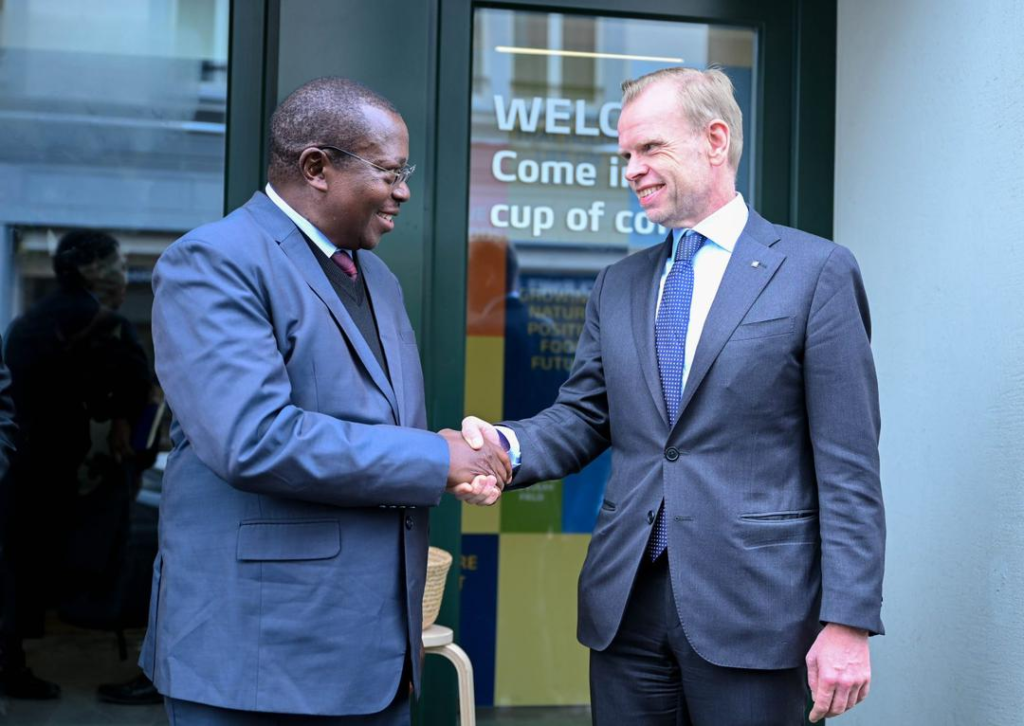Kilimokwanza.org Team
At the recent World Economic Forum (WEF) Annual Meeting in Davos, Switzerland, Tanzanian Vice-President Dr. Philip Mpango hailed the successes of the Southern Agricultural Growth Corridor of Tanzania (SAGCOT) in revolutionizing the country’s agricultural sector. Speaking on the sidelines of the event, Dr. Mpango emphasized the importance of expanding and enhancing agricultural infrastructure to bolster Tanzania’s position as a regional food powerhouse.
Dr. Mpango’s commendation of the SAGCOT initiative highlights a major recognition of Tanzania’s progress in agricultural development. With its focus on transforming agriculture through public-private partnerships, SAGCOT has played a crucial role in enhancing productivity and market access for Tanzanian farmers. This initiative demonstrates Tanzania’s dedication to employing innovative methods to address long-standing agricultural challenges.
In Davos, Dr. Mpango discussed scaling up investments in critical agricultural infrastructure with leaders from Yara International, a global firm specializing in agricultural products and solutions. These discussions centered on enhancing irrigation systems, storage facilities, and transportation networks. He stressed that relying solely on shifting cultivation is insufficient for the country’s agricultural advancement. Instead, a multifaceted approach, including improved water management and the establishment of a borehole on every targeted farm, is essential.
The Vice-President’s emphasis on expanding agricultural infrastructure underlines the need for a robust foundation to support agricultural growth. Dr. Mpango’s advocacy for a multifaceted approach, including improved water management and establishing boreholes, demonstrates an understanding of the complex nature of agricultural development. This approach is crucial not only for increasing productivity but also for ensuring sustainability and resilience against climate change.
The Vice-President underscored the need for capacity building among smallholder farmers, aiming to enhance farming techniques, productivity, and competitiveness. He cited SAGCOT’s farmer-to-farmer learning initiatives, which involve experienced farmers sharing knowledge and techniques with others, as a model for success in this domain. By enhancing farming techniques and competitiveness, Tanzania can empower a significant portion of its population who depend on agriculture for their livelihoods. Such initiatives are crucial for ensuring that the benefits of agricultural growth are widely distributed among the population, especially among small-scale farmers.
Value addition and improved market access were also highlighted as crucial for increasing returns for Tanzanian farmers and minimizing post-harvest losses. Dr. Mpango called for support in agricultural research and development to foster crop variety improvement and promote climate-resilient agriculture.
The Vice-President rightly highlighted the importance of value addition and improved market access. Developing local value chains can lead to greater economic benefits and drive inclusive growth in the country.
Acknowledging the limitations of existing agricultural research institutions, Dr. Mpango advocated for collaboration with international partners to bridge these gaps. This partnership, he believes, is key to transforming Tanzania into a regional and global food granary.
Dr. Mpango’s call for support in agricultural research and development is timely. Investing in crop variety improvement and climate-resilient agriculture is essential for Tanzania to address the current and future challenges posed by climate change. The collaboration with international partners to enhance agricultural research signifies Tanzania’s openness to global knowledge and expertise, which is vital in an increasingly interconnected world.
In response, Ms. Fernanda Larsen, Executive Vice President for Africa, Asia, and Oceania at Yara International, expressed her commitment to Tanzania’s vision for agricultural transformation. She referenced Yara International’s Africa 2030 strategy, which focuses on sustainable growth and agricultural development, aligning with Tanzania’s goals, as a basis for ongoing and future collaborations.
Parallel to agricultural discussions, Dr. Mpango also engaged with the Global Plastic Action Partnership (GPAP). He invited GPAP to collaborate with Tanzania in managing plastic waste, emphasizing the need for research to identify and strategize against the challenges posed by plastic pollution.
Furthermore, Dr. Mpango’s meeting with the Ethiopian Deputy Prime Minister and Minister for Foreign Affairs, Mr. Demeke Mekonnen Hassen, aimed at bolstering economic and diplomatic relations between Tanzania and Ethiopia, showcasing Tanzania’s proactive stance in regional cooperation and development.
The Davos 2024 forum, themed around security, economic growth, artificial intelligence, and climate strategies, offered a platform for Tanzania to assert its strategic vision. Dr. Mpango’s engagements underline Tanzania’s commitment to sustainable development, particularly in agriculture and environmental management, setting a course towards a prosperous and resilient future.

